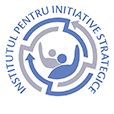Results of the project to monitor funds provided by international financial institutions in connection with the COVID-19 crisis

The multidimensional crisis generated by COVID-19 revealed serious dysfunctions of the public sector in the Republic of Moldova – from the weak capacity to make crisis decisions, the malfunctioning of the health system, to the lack of an emergency financing mechanism. In order to deal with the pandemic, the Republic of Moldova requested humanitarian aid and requested international funding. However, the authorities did not ensure sufficient transparency in the negotiation process, and did not have a strategic approach to communicating and informing the public about the conditions of assistance, and the destination of funds.
Within the project “Enhancing Moldovan civil society effort in monitoring the IFI crisis COVID-19 related funding”, implemented with the support of the Soros Foundation Moldova, the Institute for Strategic Initiatives (IPIS) aimed to collect information related to the financial assistance obtained by Moldova from international financial institutions (IFIs), to develop analytical notes based on the information obtained, but also to identify institutional obstacles and gaps in transparency in the process of administering financial assistance.
According to data obtained by IPIS, in the first year of the pandemic, the Republic of Moldova managed to negotiate and ratify five loan agreements with international financial institutions. Financial assistance was provided to mitigate the economic and social impact of the crisis generated by COVID-19, such as covering the budget deficit, support for Micro, Small and Medium Enterprises (SMEs), but also strengthening the health system.
Victoria Olari, IPIS project coordinator: Although financial aid is a matter of great public interest, the authorities do not pay enough attention to transparency and supervision. IPIS, with the support of the Soros Foundation Moldova, aims to monitor the management of funds provided by international financial institutions. The conclusions of our experts are that the authorities do not ensure adequate transparency of the negotiation process, no strategic approach to communication in informing the public about the conditions of assistance, nor do they provide the public with coherent information on what the funds are used for.
The lack of transparency was also mentioned by the journalists who carried out four thematic investigations within this project.
Liuba Șevciuc, co-founder CU SENS: The biggest difficulty we faced was the refusal of the authorities to give interviews in front of the camera and to provide information of public interest. Or, the topics I did in the project were video. Both the Ministry of Education and Research, and the medical institutions targeted in the investigations, initially refused to give us interviews and data on the purchases made during the pandemic. Only after we put pressure through the Government’s press service, through requests and daily phone calls, we managed to do our job as a journalist.
“Citizens need to know and understand which IFIs are providing support to Moldova, what are the conditions for this support and who will be the final beneficiaries. Also, information on the progress of the international financial assistance, the absorption rate and the possible reasons for non-utilization of the granted budget must be easily accessible“, – says Natalia Camburian, Director of the Good Governance Department, Soros Foundation Moldova.
Natalia Camburian: Transparent and correct administration of funds received from International Financial Institutions (IFI) must be a priority for public authorities. According to the analysis carried out by the project experts, the Republic of Moldova signed in 2020 five loan and financial support agreements worth about 418 million EUR (about 9 billion MDL). The authors pointed out that never before has Moldova benefited from such extensive support from such a large number of donors and focused on a single dimension – public health. In this context, in order to make public authorities accountable, it is imperative to ensure free access to information of public interest.
“For these reasons, the Foundation supports the effort of civil society and the media to monitor the management of IFI funds in order to increase transparency and reduce opportunities for corruption that may arise in the absence of an effective accountability mechanism”, – concludes Natalia.
More information read in the Analytical Notes made in this project:
Mapping the external assistance provided to the Republic of Moldova in the fight against the COVID-19 pandemic https://bit.ly/2ZmBDVV
Monitoring IFI funds in the context of the COVID-19 crisis. Legal perspective, transparency and anti-corruption https://bit.ly/3DUTFOf
Analysis of how humanitarian and social assistance for COVID-19 was distributed and managed https://bit.ly/3cOw8m7



 Română
Română Русский
Русский